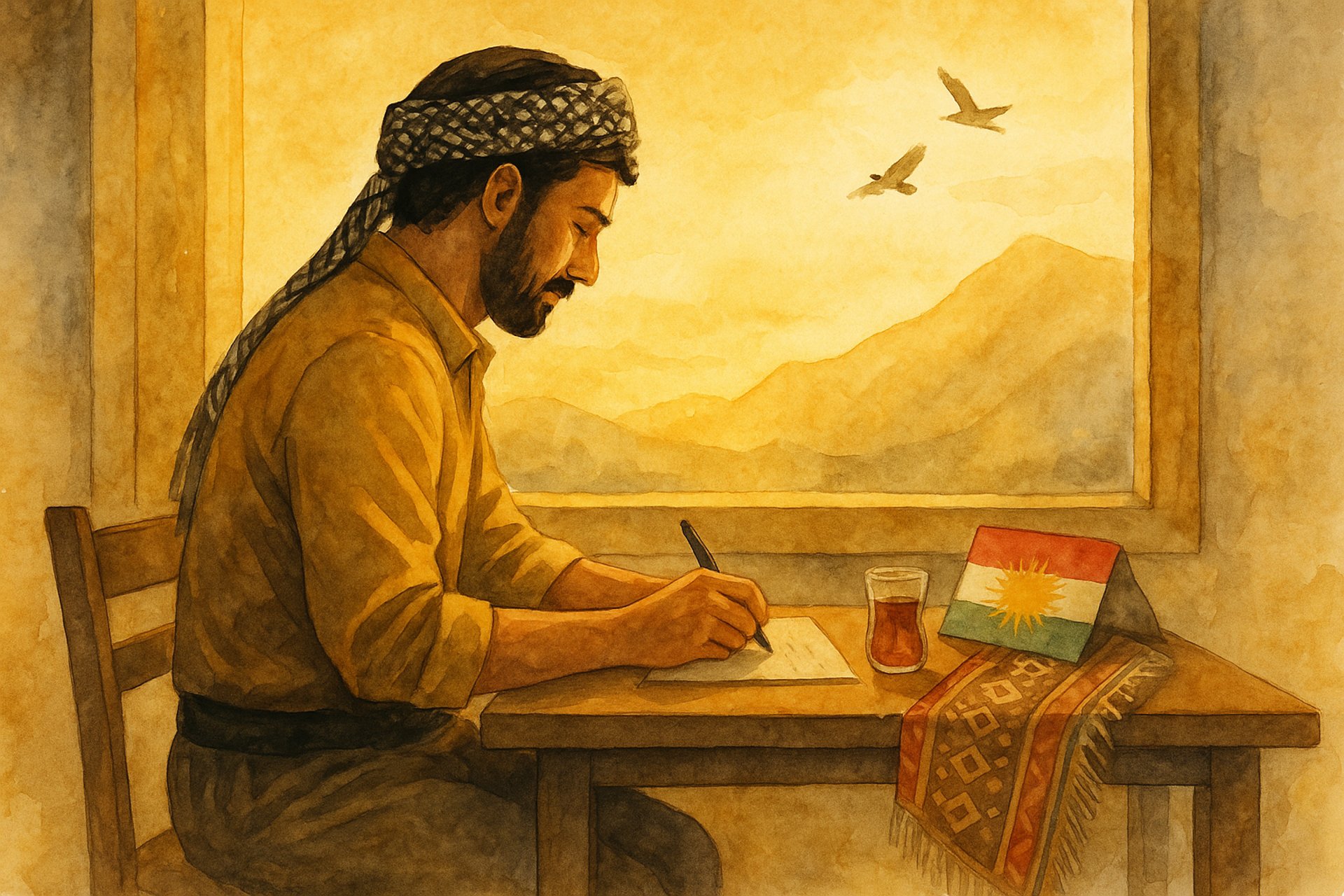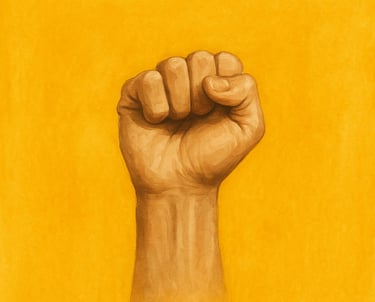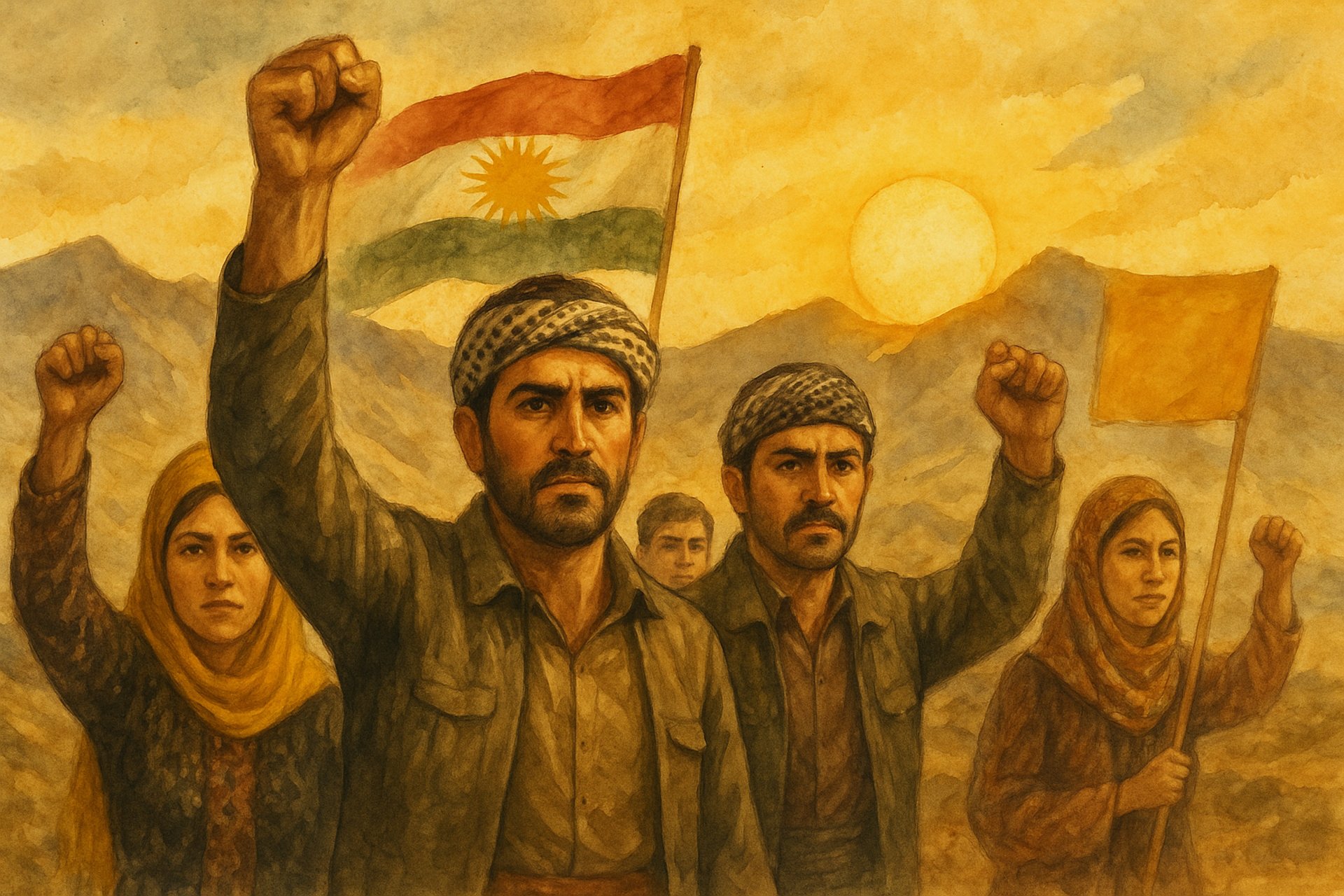


The Kurdish people have lived across Iran, Iraq, Syria, and Turkey for centuries, forming one of the world’s largest ethnic groups without an independent state. In Iran, Kurds have long faced discrimination, cultural bans, and political persecution simply for expressing their identity and demanding equal rights.
1946 – The Republic of Mahabad
In northwest Iran, Kurdish leaders declared the Republic of Mahabad, a short-lived independent Kurdish state supported by local fighters and intellectuals. It became a symbol of Kurdish unity and freedom. Less than a year later, Iranian forces crushed the republic, executed its president Qazi Muhammad, and began decades of suppression against Kurdish self-determination.
1979 – The Islamic Revolution
When the Iranian Revolution overthrew the Shah, many Kurds hoped for equality under the new government. Instead, the new Islamic Republic launched military operations against Kurdish towns that demanded autonomy and respect for Kurdish language and culture. Thousands of civilians were killed, and political groups like Komala and the Kurdistan Democratic Party of Iran (KDPI) were banned.
1980s–2000s – Years of Repression
During this period, Kurdish activists, teachers, and journalists were arrested, tortured, or executed on false charges such as “enmity against God.” Peaceful activism and calls for democracy were labelled as rebellion. Entire generations of Kurds grew up under heavy surveillance, unable to freely speak their language or celebrate their culture.
2009–2018 – Voices Silenced
Kurdish activists like Ehsan Fatahian (2009), Farzad Kamangar (2010), and Sherko Moarefi (2013) were executed after unfair trials. Their deaths became symbols of resistance. Despite international condemnation, executions continued — including those of Loghman Moradi and Zanyar Moradi in 2018, showing that the regime’s persecution of Kurds never stopped.
2022 – Women, Life, Freedom
The death of Mahsa (Jîna) Amini, a young Kurdish woman, became a turning point. Her killing in police custody sparked nationwide protests that united Iranians of all backgrounds under the Kurdish slogan “Jin, Jiyan, Azadî” — “Women, Life, Freedom.” For the first time in decades, the world began to recognise the courage and suffering of Kurdish people inside Iran.
Today – The Fight Continues
Kurds in Iran still face censorship, imprisonment, and violence for demanding freedom and equality. Activists are arrested for peaceful protests; many are forced to flee or live in hiding. But despite all the risks, the Kurdish people continue to stand strong — their message clear and unbroken: we want justice, dignity, and the right to live freely.
Timeline of the Kurdish Struggle
Join Us
Subscribe for updates and support


